
Dr. Nguyen Duc Hien
PV : Could you please tell us the most basic contents of the Politburo 's Resolution 76?
Dr. Nguyen Duc Hien : After 8 years of implementing Resolution 41 of the Politburo, on April 24, 2024, the Politburo issued Resolution 76. And Resolution 76 also opens up new development directions, new orientations for the development of the Vietnamese Oil and Gas industry in general, and Petrovietnam in particular.
First of all, KL76 opens a new development space for Petrovietnam through orienting policies to exploit the conditions and potentials of the industry in developing the fields of renewable energy and new energy.
For Petrovietnam, KL76 aims to develop the Group into a national energy industry group, in parallel with the development of traditional fields of the Oil and Gas industry, but at the same time also determines the Group's pioneering role in developing fields of renewable energy and new energy.
Typically, the development of offshore wind power, coastal wind power, activities in the development of hydrogen and ammonia fields, participation in the LNG import supply chain, as well as simultaneously determining the role of Petrovietnam in the development of the energy equipment manufacturing industry, especially renewable energy and new energy.
Second, KL76 has identified policies and orientations to build and develop a number of national energy centers, integrating gas, electricity, LNG and the fields of renewable energy and new energy industries. Some localities have potential and advantages such as Ba Ria - Vung Tau, Thanh Hoa, Quang Ngai and many other localities. And in these localities, Petrovietnam's key role is determined to be promoted.
Third, KL76 has oriented and advocated the pilot implementation of a number of projects in the new energy sector such as: Developing offshore wind power projects for export, projects on hydrogen and ammonia production, etc. And in these projects and programs, it is proposed to identify specific policy mechanisms to promote the development of projects in particular, as well as the development of Vietnam's Oil and Gas industry in general.
Fourth, Resolution 76 sets out the requirements and tasks of continuing to institutionalize the orientations and policies that are still relevant and valuable in Resolution 41.
Over the past 8 years, since Resolution 41 was issued, many policies and orientations, especially specific mechanisms for Petrovietnam have not been promptly institutionalized. Now, KL76 requires that they continue to be implemented. At the same time, KL76 also orients a number of policy mechanisms for Petrovietnam, for example, related to improving the oil and gas recovery coefficient; ensuring capital sources, and specific mechanisms for Petrovietnam's operations. In addition, there are requirements for mechanisms to develop fields from upstream to downstream in the oil and gas sector with new orientations, related to the development of infrastructure systems, especially import, transportation, and processing infrastructure related to a number of fields in the gas industry in accordance with the orientation of using large-scale, shared infrastructure, in which the focus of State-owned enterprises in the oil and gas sector is determined.
Thus, in KL76, in addition to continuing to inherit the orientations in Resolution 41, the Politburo also determined new orientations, creating policy mechanisms to promote the rapid and sustainable development of the Vietnamese Oil and Gas industry and promptly grasp the current energy transition trend in the world.

PV : Sir, for a long time now our Party has always focused on how to "bring the Party's resolutions into life". So to put Resolution 41 and Resolution 76 into Petrovietnam's practical operations, what issues need to be focused on?
Dr. Nguyen Duc Hien : In Resolution 76, the Politburo pointed out that one of the subjective reasons why many development goals of the Oil and Gas industry, with Petrovietnam as the main force, have not been achieved as required by Resolution 41 is the institutionalization of the spirit of Resolution 41 into policies. Therefore, this time, in Resolution 76, major and specific tasks were set out for agencies and organizations from the National Assembly, the Government to the Party Committees of relevant Ministries and Provincial Party Committees. To implement Resolution 76, I think that one of the very important tasks is that the Government Party Committee must promptly direct the development of programs and action plans as required by Resolution 76.
Another extremely important issue, in my opinion, is the need to improve guidance, inspection and supervision in the implementation of KL76. Currently, the process of perfecting policy mechanisms requires the participation of ministries and branches to concretize policy mechanisms of a very specific nature. Because Petrovietnam's operations have many specific and different characteristics, it requires the approach to policy approval to be consistent with the characteristics of the industry and in accordance with international practices. Therefore, Resolution 41 and later KL76 have proposed many orientations and policies that need to be perfected in institutions. I think that relevant ministries and branches such as the Ministry of Industry and Trade, the Ministry of Planning and Investment, and the Ministry of Finance must soon, based on the Government's action program, perfect policy mechanisms and laws in general.
Currently, the 2022 Petroleum Law has been promulgated and has created basic steps for common institutions for the Petroleum industry. However, in response to development requirements, there are still many policy mechanisms that are very specific to the industry and many other related laws are in the process of being amended. For example, the Law on Capital Management and Use at State-Owned Enterprises, and other mechanisms need to continue on the basis of the Party's guidelines and policies to be completed soon, in order to enhance the role of decentralization and delegation of power to the Board of Directors and Board of Management of State-Owned Enterprises. As well as how to improve the effectiveness of the owner's representative agencies. At the same time, there must be policy mechanisms for the industry to develop in accordance with the conditions of each industry.
All the orientations have mentioned the policy very fully, but institutionalizing it into policies and specific mechanisms is still lacking.
PV: Sir, the search, exploration and exploitation of oil and gas contain many risks. Resolution 41 also requires a specific mechanism for Petrovietnam, however, up to now, it seems that not much has been implemented?
Dr. Nguyen Duc Hien: In Resolution 76, the Politburo identified the field of oil and gas exploration and exploitation as a core field that must be one step ahead and must have a mechanism for this field to truly develop. In Resolution 76, Resolution 41 also provided orientations on specific policy mechanisms for the fields from upstream to downstream of Petrovietnam, including the field of exploration and exploitation.
The nature of the field of exploration and exploitation is very risky. Therefore, I think that the orientation needs to encourage and have a mechanism to create a fund for exploration and exploitation of Petrovietnam. Currently, Law 69 is the Law on Management and Use of State Capital in Enterprises, which is in the process of completion. Regarding the orientation, some special fields such as oil and gas have also had fields that have to form a number of extra-budgetary funds. And only when this extra-budgetary fund mechanism is formed, will it create conditions for enterprises in special fields such as Petrovienam to be able to carry out the core task of exploration and exploitation to increase domestic and foreign oil and gas reserves. International practice, there are many models of funds for exploration and exploitation of energy corporations in the world. I think that the proposal for this mechanism, in terms of policy as well as implementation, needs to be formed soon to create conditions for the oil and gas industry to be able to develop.
Currently, in terms of policies to create conditions for state-owned enterprises (SOEs) to develop, the Party has issued a number of very important resolutions. First is Resolution 12-NQ/TW on innovation and arrangement of SOEs issued on June 3, 2017 by the 12th Central Executive Committee. For the oil and gas industry, there are Resolution 41 and KL76 and recently, for enterprises, including SOEs in general, Resolution 29-NQ/TW was issued on November 17, 2022 on industrialization and modernization.

From those policies, I think the most important thing is to soon institutionalize the Party's orientations to create favorable conditions for SOEs to carry out their pioneering and leading missions in areas that the State needs to hold, areas related to national defense and security, or areas that private enterprises do not perform.
For state-owned enterprises like Petrovietnam, it is necessary to form policy mechanisms that truly create the most favorable decentralization and delegation of power to the Board of Directors and the Board of Management. At the same time, it is also necessary to form a management and supervision mechanism of the owner's representative agencies.
For SOEs in general, as well as Petrovietnam in particular, one of the very important issues is to create conditions to change the general governance mechanism, the issues of recruitment, training, and appointment of cadres at SOEs must also be different from civil servants and public employees. Resolution 12 of the 12th Central Executive Committee has emphasized this. Then, regarding the salary and bonus regime, operating the apparatus, I think these orientations need to be institutionalized soon according to the requirements of Resolution 12. And another very important requirement is to soon amend Law 69 according to the requirements of the resolution.
Industries with very specific characteristics and playing a very important role such as Petrovietnam with a contribution of 6-9% of the annual State budget, revenue accounting for about 10% of the country's GDP, are very key areas, requiring policies and mechanisms to truly promote and facilitate development.
Currently, Resolution 29 of the 13th Central Executive Committee has directed us to build a number of corporations and state-owned enterprises in the field such as Petrovietnam, and to "order" a number of very specific policies to encourage and create conditions for businesses to truly grow. I think that in terms of policy, this content must be institutionalized soon.
The mechanisms for evaluating the performance of state-owned enterprises also need to require overall evaluation, not evaluation of each investment project. Then, the removal of policy mechanisms to promote the application of science and technology and innovation for state-owned enterprises is also very difficult. I think that all these orientations have mentioned the policy very fully, but institutionalizing it into policies and specific mechanisms is still lacking.
PV : Thank you for this interview!
KL76, in addition to continuing to inherit the orientations in Resolution 41, the Politburo also determined orientations and created policy mechanisms to promote the rapid and sustainable development of the Vietnamese Oil and Gas industry and promptly grasp the current energy transition trends in the world.
Nguyen Nhu Phong
Source: https://www.pvn.vn/chuyen-muc/tap-doan/tin/870549e2-10f1-49dd-abcb-e1530d86b727




![[Photo] Impressions of the Can Gio Whale Festival](https://vphoto.vietnam.vn/thumb/1200x675/vietnam/resource/IMAGE/2025/10/09/1759984089762_image12334-5642-jpg.webp)











![[VIDEO] Petrovietnam Science and Technology Achievements Exhibition](https://vphoto.vietnam.vn/thumb/402x226/vietnam/resource/IMAGE/2025/9/22/c4d1943f4dbd44dda598ddf61f282a4d)


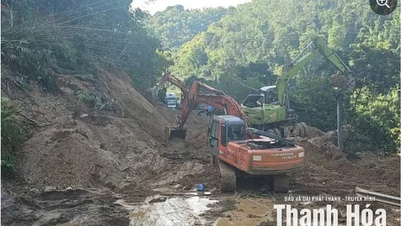

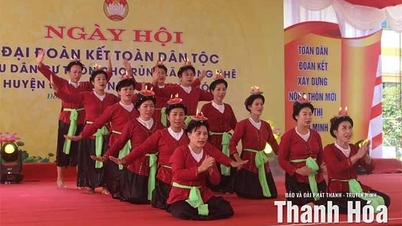

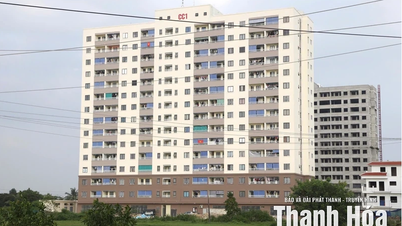
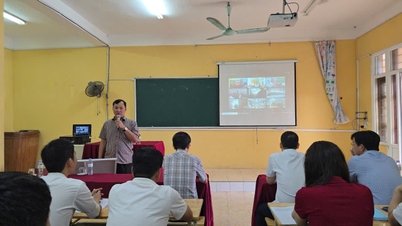
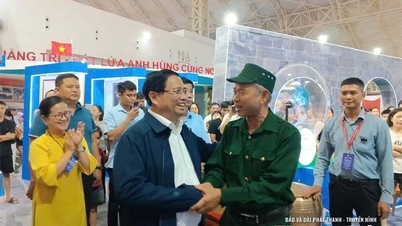









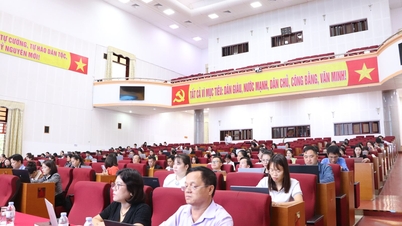


























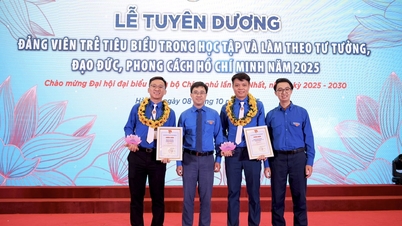
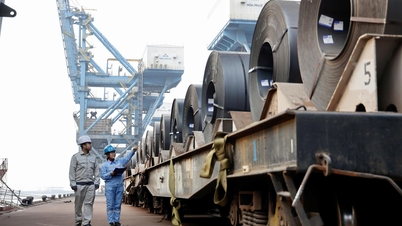





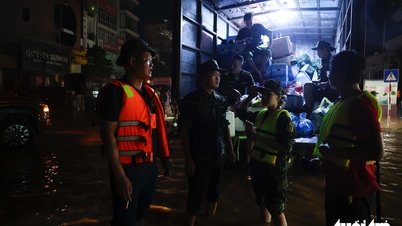

















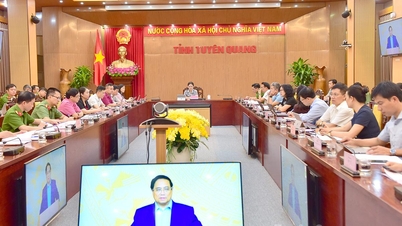
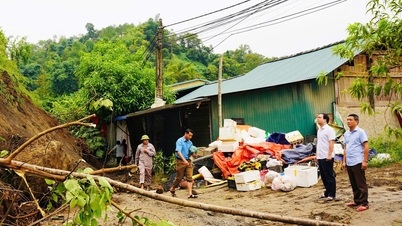

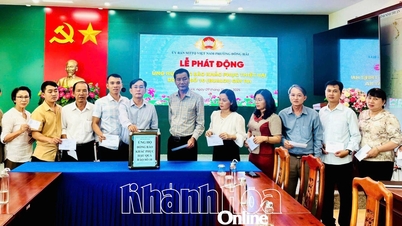




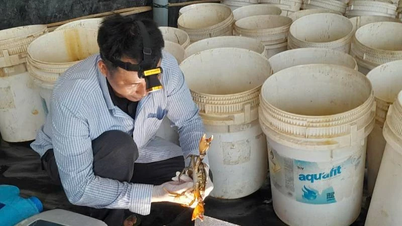










Comment (0)